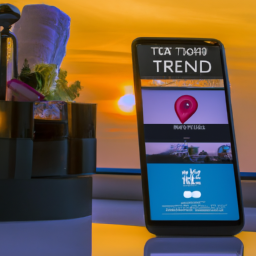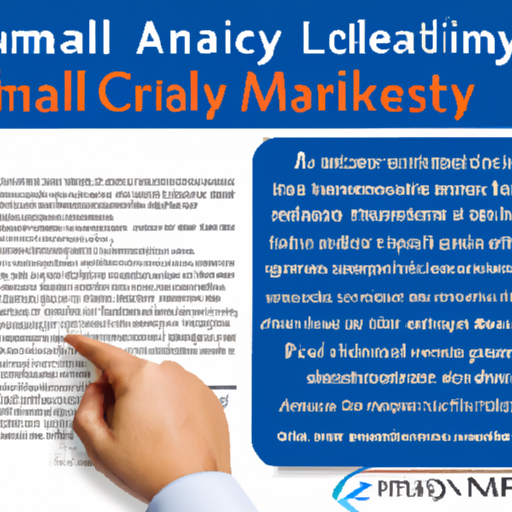Trends In The Hospitality Industry
If you’re curious to know what’s happening in the world of hospitality, look no further. This article will give you a snapshot of the latest trends that have been shaping the hospitality industry. From the rise of experiential travel to the increasing demand for sustainable practices, these trends are reshaping the way hotels and resorts cater to guests. So sit back, relax, and let’s take a closer look at the exciting developments taking place in the hospitality industry.
Table of Contents
Technology Trends
Internet of Things (IoT) in Hospitality
The Internet of Things (IoT) has made significant strides in the hospitality industry, revolutionizing the way hotels and resorts operate. With IoT, various devices and systems within a hotel can be interconnected and communicate with each other, creating a more seamless and efficient guest experience. For example, IoT can enable guests to control their room temperature, lighting, and entertainment systems through their smartphones or voice commands. Additionally, IoT can improve operational efficiency by automating tasks such as housekeeping and inventory management. Overall, IoT in hospitality enhances guest satisfaction, streamlines operations, and reduces costs.
Artificial Intelligence (AI) and Machine Learning (ML)
Artificial Intelligence (AI) and Machine Learning (ML) are transforming the hospitality industry by enabling hotels to provide personalized experiences and streamline operations. Through AI and ML algorithms, hotels can analyze vast amounts of customer data to gain insights into guest preferences and behaviors. This data-driven approach allows hotels to tailor their offerings, from personalized recommendations to customized marketing campaigns. AI-powered chatbots and virtual assistants also play a crucial role in customer service by providing instant responses to guest inquiries and requests. Moreover, AI and ML facilitate revenue management by optimizing pricing strategies based on demand patterns and market trends.
Virtual Reality (VR) and Augmented Reality (AR)
Virtual Reality (VR) and Augmented Reality (AR) have the potential to revolutionize the way guests experience hotels and destinations. VR technology allows guests to immerse themselves in virtual environments, providing a preview of hotel rooms, amenities, and nearby attractions. This immersive experience helps guests make informed decisions when choosing accommodations and enhances their overall travel planning process. On the other hand, AR complements the physical environment by overlaying digital information onto real-world settings. Hotels can utilize AR to enhance guest interactions, such as providing virtual tour guides or displaying relevant information about points of interest within the hotel premises. VR and AR technologies create a unique and engaging experience for guests, driving customer satisfaction and loyalty.
Mobile Technology in Hospitality
Mobile technology has become an integral part of the hospitality industry, transforming the way guests interact with hotels and enhancing their overall experience. Through mobile apps, guests can easily book accommodations, check-in and check-out remotely, and access a wide range of hotel services. Mobile apps also enable guests to communicate with hotel staff, request room service, and make special requests conveniently. Furthermore, mobile technology facilitates contactless payments, allowing guests to settle bills securely and efficiently. Hotels can leverage mobile technology to personalize guest experiences by sending targeted offers and promotions based on guest preferences and behaviors. The integration of mobile technology in the hospitality industry creates a seamless and convenient experience for guests while improving operational efficiency for hotels.
Sustainable Practices Trends
Eco-friendly Initiatives in Hotels
Hotels are increasingly adopting eco-friendly initiatives as part of their commitment to sustainability and responsible tourism. These initiatives include energy-saving practices, such as using LED lighting, implementing energy management systems, and installing renewable energy sources like solar panels. Hotels are also implementing water conservation measures by using low-flow plumbing fixtures, implementing towel and linen reuse programs, and utilizing rainwater harvesting systems. Additionally, many hotels are embracing recycling programs, reducing waste through composting, and utilizing sustainable materials in their construction and operations. These eco-friendly initiatives not only contribute to reducing the environmental impact of hotels but also appeal to environmentally conscious travelers who prioritize sustainable practices.
Efficient Waste Management
Efficient waste management has become a crucial aspect of sustainable practices in the hospitality industry. Hotels are implementing robust waste management systems that focus on reducing, recycling, and properly disposing of waste. By implementing recycling programs, hotels can divert a significant amount of waste from landfills and promote the circular economy. Many hotels have also started composting organic waste to produce nutrient-rich soil and reduce their carbon footprint. Furthermore, hotels are embracing innovative waste reduction strategies, such as investing in kitchen waste-to-energy systems and working with local organizations for food donation programs. Efficient waste management practices not only minimize the environmental impact but also contribute to cost savings and brand reputation for hotels.
Green Energy Solutions
Hotels are increasingly investing in green energy solutions as a means to reduce their carbon footprint and dependence on fossil fuels. Renewable energy sources like solar, wind, and geothermal power are being integrated into hotel operations to generate clean and sustainable energy. Many hotels are installing solar panels on their rooftops or in nearby areas to harness solar energy for electricity and water heating. Some hotels are even exploring the use of wind turbines and geothermal systems to meet their energy needs. By adopting green energy solutions, hotels not only reduce their environmental impact but also benefit from long-term cost savings and strengthen their sustainability credentials.
Sustainable Food and Beverage Options
The hospitality industry is witnessing a growing demand for sustainable and responsible food and beverage options. Hotels are embracing farm-to-table concepts by sourcing local and organic produce, reducing food miles and supporting local farmers. They are also focusing on reducing food waste through innovative practices such as composting, food donation programs, and portion control. In addition, hotels are offering plant-based and vegetarian options to cater to the increasing number of guests adopting a sustainable and healthy lifestyle. Sustainable food and beverage options not only contribute to environmental conservation but also serve as a unique selling point for hotels, attracting environmentally conscious guests and meeting their dietary preferences.
Personalization and Customization Trends
Tailored Experiences for Guests
Hotels are increasingly focusing on providing personalized and tailored experiences for their guests. By understanding guest preferences and behaviors, hotels can create customized experiences that cater to individual needs and expectations. For instance, hotels can offer personalized welcome amenities, room preferences, and curated recommendations based on guest profiles. Personalization extends beyond the stay itself, with hotels offering tailored experiences during the pre-arrival and post-checkout stages. Through personalized experiences, hotels can enhance guest satisfaction, foster loyalty, and differentiate themselves in a competitive market.
Data-driven Personalization
The availability of vast amounts of guest data has enabled hotels to leverage data-driven personalization to create highly tailored experiences. By analyzing guest preferences, booking history, and on-site behaviors, hotels can gain valuable insights into individual preferences and offer customized recommendations and services. For example, hotels can send personalized offers and promotions, suggest relevant activities or dining options based on guest interests, and anticipate guest needs to provide a seamless and personalized stay. The use of data-driven personalization not only enhances the guest experience but also enables hotels to maximize revenue opportunities and build long-lasting customer relationships.
Customized Packages and Services
Hotels are increasingly offering customized packages and services to cater to the diverse needs and preferences of their guests. From tailored spa packages and exclusive dining experiences to personalized tours and activities, hotels are designing offerings that can be customized based on guest preferences and interests. Whether it’s a romantic getaway, a family vacation, or a wellness retreat, hotels aim to provide packages and services that meet the unique requirements of each guest. By offering customized options, hotels can attract a broader range of guests and create memorable experiences that drive customer loyalty.
Personalized Loyalty Programs
Loyalty programs have evolved beyond traditional points-based systems to offer personalized benefits and rewards. Hotels are leveraging guest data to create personalized loyalty programs that cater to individual preferences and interests. By understanding guest behaviors and preferences, hotels can offer tailored rewards, such as room upgrades, exclusive access to amenities, and personalized offers. Moreover, hotels are incorporating gamification elements into loyalty programs to engage guests and provide a unique and interactive experience. Personalized loyalty programs not only increase guest loyalty and repeat bookings but also serve as a valuable tool for hotels to gather feedback and insights from their most loyal customers.
Wellness and Health Trends
Growing Popularity of Wellness Tourism
The wellness tourism industry is experiencing significant growth, with travelers seeking experiences that prioritize their physical, mental, and emotional well-being. Hotels are catering to this demand by offering a wide range of wellness-focused amenities and services. From dedicated wellness retreats and spa facilities to fitness centers, yoga studios, and mindfulness programs, hotels are providing guests with options to enhance their overall wellness during their stay. Some hotels even offer specialized wellness packages that include activities like hiking, meditation, and nutritional counseling. By embracing wellness tourism, hotels not only attract health-conscious travelers but also position themselves as destinations for rejuvenation and self-care.
Increased Focus on Mental Health
With the growing recognition of the importance of mental health, hotels are prioritizing initiatives that support the well-being of their guests. Hotels are incorporating mindfulness practices, such as meditation and yoga, into their offerings to help guests relax and find inner peace. Some hotels provide dedicated spaces for meditation and offer in-room amenities that promote sleep and relaxation. Additionally, hotels are training their staff to identify and support guests who may be experiencing mental health challenges, offering empathetic and understanding services. By addressing mental health concerns, hotels create a safe and nurturing environment for their guests and contribute to overall guest well-being.
Healthy and Organic Food Options
Hotels are responding to the increasing demand for healthy and organic food options by incorporating them into their menus and dining experiences. Many hotels are partnering with local farmers and suppliers to source fresh and organic ingredients, ensuring the quality and sustainability of their food offerings. Hotels are offering plant-based and vegetarian options, as well as gluten-free and allergen-friendly choices, to cater to guests’ dietary preferences and restrictions. Moreover, hotels are incorporating wellness-focused concepts into their dining experiences, such as farm-to-table dining, healthy cooking demonstrations, and customized meal plans. By providing healthy and organic food options, hotels contribute to the overall well-being of their guests and align with sustainable and responsible dining practices.
Wellness Facilities and Services
Hotels are investing in wellness facilities and services to cater to guests’ holistic well-being. From state-of-the-art fitness centers equipped with the latest exercise machines to luxurious spa facilities offering a range of treatments and therapies, hotels are providing guests with opportunities to relax, rejuvenate, and maintain their well-being during their stay. Some hotels offer specialized wellness programs, such as stress management workshops, yoga retreats, and holistic wellness consultations. Furthermore, hotels are integrating nature and outdoor spaces into their properties, offering opportunities for guests to connect with nature and engage in outdoor activities. By providing comprehensive wellness facilities and services, hotels create a nurturing environment for guests to focus on self-care and well-being.
Online Booking and Distribution Trends
Direct Bookings and Mobile Apps
Hotels are increasingly emphasizing direct bookings through their official websites and mobile apps to reduce reliance on online travel agencies (OTAs) and maximize revenue opportunities. By incentivizing guests to book directly, hotels can offer exclusive deals, loyalty program benefits, and a more personalized booking experience. Mobile apps play a vital role in facilitating direct bookings by offering a user-friendly interface, seamless payment options, and personalized recommendations. Moreover, hotels can leverage push notifications and in-app messaging to engage with guests and encourage direct bookings. By promoting direct bookings, hotels can build stronger relationships with their guests, increase profit margins, and gain valuable customer data.
Integration with Online Travel Agencies (OTAs)
While direct bookings are a priority for hotels, the integration with online travel agencies (OTAs) remains a significant distribution strategy. OTAs provide hotels with access to a vast network of potential guests and offer efficient booking platforms. Hotels can leverage OTAs to reach a broader audience, especially international travelers, and generate bookings during low-demand periods. Effective integration with OTAs involves optimizing hotel listings, competitive pricing strategies, and utilizing value-added offerings to attract guests. Hotels must maintain a balance between direct bookings and OTA partnerships to maximize their reach, revenue, and occupancy rates.
Alternative Accommodation Platforms
Alternative accommodation platforms, such as vacation rentals and home-sharing services, have disrupted the traditional hotel industry. Hotels are responding to this trend by diversifying their offerings and incorporating alternative accommodation options within their properties. Some hotels are partnering with vacation rental platforms to list residential-style suites or villas, providing guests with the comforts of home while enjoying the hotel’s amenities and services. Other hotels are creating unique and immersive accommodation experiences, such as glamping tents or treehouses, to cater to guests seeking unconventional stays. By embracing alternative accommodation platforms, hotels can attract a wider range of guests and compete with the growing popularity of non-traditional accommodations.
Dynamic Pricing and Revenue Management
Dynamic pricing and revenue management have become essential strategies for hotels to optimize pricing and boost revenue. By utilizing advanced revenue management systems and data analytics, hotels can monitor demand patterns, competitor rates, and market trends to adjust prices in real-time. Dynamic pricing allows hotels to maximize revenue during peak demand periods while offering competitive rates during low-demand periods to attract bookings. Moreover, hotels can implement customer segmentation strategies to offer personalized pricing based on guest profiles and behaviors. The adoption of dynamic pricing and revenue management systems enables hotels to optimize their pricing strategies, increase revenue, and achieve higher profitability.
Changing Guest Preferences Trends
Experience-driven Travel
Guest preferences have shifted towards experience-driven travel, with travelers seeking immersive and authentic experiences during their stays. Hotels are adapting to this trend by offering unique and experiential activities, such as cooking classes, cultural workshops, and guided tours. Some hotels collaborate with local artisans, musicians, or chefs to provide guests with opportunities to engage in local traditions and customs. Additionally, hotels are incorporating elements of local culture into their décor, amenities, and overall ambiance, creating an authentic and memorable experience for guests. By focusing on experience-driven travel, hotels can differentiate themselves and create a lasting impression on guests.
Authentic and Local Experiences
Guests are increasingly drawn to authentic and local experiences that allow them to immerse themselves in the destination’s culture and community. Hotels are partnering with local businesses, artisans, and tour operators to curate unique experiences for their guests. These may include city tours led by knowledgeable local guides, culinary experiences featuring regional cuisine, or visits to local markets and attractions. Hotels are also incorporating local design elements, artwork, and materials into their properties to create a sense of place. By embracing authentic and local experiences, hotels provide guests with a deeper connection to the destination and support the local economy.
Digital Detox and Unplugged Getaways
In an increasingly connected world, there is a growing desire among guests to disconnect from technology and enjoy unplugged getaways. Hotels are responding to this trend by offering digital detox programs and creating technology-free zones within their properties. These areas provide guests with a peaceful and tranquil environment to relax, unwind, and reconnect with nature and themselves. Moreover, some hotels provide in-room amenities that promote a technology-free experience, such as books, board games, and meditation tools. By catering to the need for digital detox and unplugged getaways, hotels offer guests an escape from the constant digital distractions of everyday life.
Flexible Check-in and Check-out
Flexible check-in and check-out options are becoming increasingly important for guests seeking convenience and a personalized experience. Hotels are embracing flexible policies that allow guests to check-in and check-out at their preferred times, accommodating early arrivals and late departures. Some hotels offer mobile check-in and check-out options, allowing guests to bypass the front desk and seamlessly access their accommodations. Additionally, hotels are implementing express check-out services and luggage storage facilities to provide hassle-free experiences for guests. By offering flexible check-in and check-out options, hotels enhance guest satisfaction and cater to the needs of modern travelers.
Social Media Influence and Online Reviews Trends
Power of Social Media Engagement
Social media platforms have become powerful tools for hotels to engage with their guests, build brand awareness, and drive bookings. Hotels are using social media to showcase their offerings, share compelling visuals, and interact with guests through comments, direct messages, and live chats. Through social media, hotels can create a community of loyal followers, generate user-generated content, and amplify their brand message. Moreover, hotels can leverage social media influencers and content creators to promote their properties and reach a broader audience. By harnessing the power of social media engagement, hotels can enhance their online presence, build credibility, and attract potential guests.
User-generated Content and Influencer Marketing
User-generated content (UGC) has become an influential marketing tool for hotels, as it provides authentic and relatable content created by guests themselves. Hotels encourage guests to share their experiences through photos, videos, and reviews, which can be shared on social media platforms, hotel websites, and other marketing channels. UGC not only showcases the hotel from a guest perspective but also encourages social proof and trust among potential guests. In addition to UGC, hotels are collaborating with social media influencers and content creators to promote their properties to their large and engaged audiences. By leveraging user-generated content and influencer marketing, hotels can increase brand visibility, credibility, and ultimately, bookings.
Online Reputation Management
Online reputation management is crucial for hotels to maintain a positive brand image and attract potential guests. Hotels actively monitor and respond to online reviews on platforms such as TripAdvisor, Yelp, and Google Reviews. By addressing guest feedback and resolving issues promptly and publicly, hotels demonstrate their commitment to guest satisfaction and showcase their responsiveness. Hotels also proactively engage with guests on social media platforms, addressing inquiries, and providing timely and helpful responses. Additionally, hotels utilize reputation management tools to monitor online mentions and sentiment, allowing them to identify opportunities for improvement and celebrate positive guest experiences. Effective online reputation management allows hotels to build trust, manage their brand reputation, and influence potential guests’ booking decisions.
Real-time Customer Feedback
Real-time customer feedback has become crucial for hotels to continuously improve their offerings and enhance the guest experience. Hotels utilize various feedback mechanisms, such as online surveys, in-person conversations, and digital comment cards, to gather guest insights and opinions. By actively seeking feedback during the guest stay, hotels can address any issues, make real-time adjustments, and ensure guest satisfaction. Moreover, hotels leverage sentiment analysis and data analytics tools to analyze guest feedback trends and identify areas for improvement. By incorporating real-time customer feedback, hotels can make data-driven decisions, enhance service quality, and exceed guest expectations.
Staff Training and Development Trends
Emphasis on Soft Skills
The hospitality industry recognizes the importance of soft skills in delivering exceptional guest experiences. Hotels are investing in staff training programs that focus on developing skills such as communication, problem-solving, empathy, and emotional intelligence. By enhancing soft skills, hotel staff can effectively interact with guests, anticipate their needs, and provide personalized and exceptional service. Hotels also prioritize ongoing training and coaching to ensure continuous improvement among staff members, leading to enhanced guest satisfaction, loyalty, and positive word-of-mouth.
Multicultural Competence
As the hospitality industry becomes increasingly diverse, hotels are placing importance on multicultural competence among their staff. Hotels are providing training programs that promote cultural understanding, respect, and inclusivity, catering to guests from different cultural backgrounds. By understanding and appreciating the diverse needs, preferences, and behaviors of guests, hotel staff can offer personalized and culturally sensitive service. Multicultural competence training also fosters a welcoming and inclusive environment that makes guests feel valued and respected during their stay.
Continuous Learning and Performance Improvement
Hotels recognize the value of continuous learning and performance improvement for their staff. Hotels offer a range of development opportunities, such as workshops, seminars, and online courses, to enhance skills and knowledge. By investing in their staff’s professional growth, hotels create a motivated and engaged workforce that is passionate about delivering exceptional guest experiences. Hotels also utilize performance management systems that provide ongoing feedback and coaching to support staff development. Continuous learning and performance improvement contribute to a positive work culture, increased staff satisfaction, and ultimately, improved guest satisfaction.
Remote and Virtual Training
Advancements in technology have allowed hotels to embrace remote and virtual training methods. Hotels utilize e-learning platforms, webinars, and virtual classrooms to deliver training programs to their staff, regardless of their location. Remote and virtual training provide flexibility and convenience for staff members, enabling them to participate in training sessions at their own pace and schedule. Moreover, virtual training allows hotels to reach a broader audience, including remote or international staff members. By leveraging remote and virtual training, hotels can reduce training costs, increase accessibility to training resources, and ensure consistent and standardized training across their properties.
Enhanced Safety and Security Trends
Strict Safety and Sanitization Protocols
The COVID-19 pandemic has amplified the need for strict safety and sanitization protocols in the hospitality industry. Hotels have implemented enhanced cleaning practices, focusing on high-touch surfaces, public areas, and guestrooms. They have also increased the availability of hand sanitizing stations and implemented social distancing measures in common areas. Moreover, hotels are leveraging technology, such as contactless check-in/check-out processes and mobile apps for room controls, to minimize touchpoints and enhance guest safety. By implementing and communicating these safety and sanitization protocols, hotels provide guests with peace of mind and confidence in their health and well-being during their stay.
Contactless Technology and Digital Payments
Contactless technology and digital payments have become essential in minimizing physical contact and providing a seamless and convenient experience for guests. Hotels are implementing contactless check-in and check-out processes, allowing guests to complete these tasks using their smartphones or self-service kiosks. Mobile apps enable guests to access their rooms, control in-room amenities, and request services without directly interacting with hotel staff. Additionally, hotels are promoting digital payment options, such as mobile wallets and online payment gateways, to minimize the use of cash and physical credit cards. By embracing contactless technology and digital payments, hotels enhance guest safety, streamline operations, and create a touch-free environment.
Cybersecurity Measures
Hotels recognize the importance of cybersecurity in protecting guests’ personal information and maintaining guest trust. Hotels are implementing robust security measures, such as firewalls, encryption protocols, and secure Wi-Fi networks, to safeguard guest data and prevent unauthorized access. They also conduct regular cybersecurity assessments and audits to identify vulnerabilities and maintain compliance with industry standards. Staff members are trained on data protection practices, including secure handling of personal information and recognizing phishing attempts. By prioritizing cybersecurity measures, hotels demonstrate their commitment to guest privacy and protection, ensuring a safe and secure environment for guests.
Emergency Response and Crisis Management
Hotels have robust emergency response and crisis management protocols in place to ensure the safety and well-being of their guests and staff. Hotels conduct regular training exercises and drills to prepare their staff for various emergency situations, such as fire, natural disasters, and medical emergencies. They maintain communication systems and procedures to effectively coordinate responses and provide timely updates to guests and staff. Moreover, hotels collaborate with local authorities and emergency services to establish effective evacuation plans and response strategies. By prioritizing emergency response and crisis management, hotels create a secure and prepared environment for guests, instilling confidence in their ability to handle unforeseen circumstances.
Innovative Services and Amenities Trends
Smart Hotel Rooms and Connected Devices
Hotels are incorporating smart technology into their rooms to provide guests with enhanced convenience and personalized experiences. Smart hotel rooms feature connected devices and Internet of Things (IoT) technology, enabling guests to control various aspects of their room environment (such as lighting, temperature, and entertainment) using voice commands or mobile apps. Some hotels even offer voice-activated virtual assistants that can provide information, give recommendations, and facilitate in-room services. Smart hotel rooms streamline operations, improve energy efficiency, and create a seamless and personalized experience for guests.
Robotics and Automation in Hospitality
Robotics and automation have found their place in the hospitality industry, transforming service delivery and operational efficiency. Hotels are utilizing robots for tasks such as room service delivery, housekeeping, and concierge services. Robots can navigate through hotel premises, interact with guests, and deliver items securely and accurately. Automation systems are also being implemented for processes like check-in/check-out, guest communications, and inventory management. By leveraging robotics and automation, hotels can streamline operations, reduce labor costs, and enhance guest experiences through efficient and error-free service.
Concierge Chatbots and Voice Assistants
Concierge chatbots and voice assistants are becoming increasingly common in the hospitality industry, providing guests with instant and personalized assistance. These AI-powered virtual assistants are accessible through hotel websites, mobile apps, or in-room devices. They can answer guest inquiries, provide recommendations for dining and activities, and assist with requests for services like housekeeping or transportation. Chatbots and voice assistants save time for both guests and staff, offering a convenient and efficient way to access information and services. Moreover, they learn from guest interactions and can improve their responses over time, enhancing the level of personalization and guest satisfaction.
Unique and Experiential Amenities
To differentiate themselves in a competitive market, hotels are offering unique and experiential amenities that surprise and delight guests. These amenities go beyond the traditional offerings and provide guests with memorable experiences. Examples of unique amenities include rooftop bars with panoramic views, rooftop pools with glass bottoms, in-room private hot tubs, or private cinema rooms. Some hotels even offer unusual amenities such as art galleries, libraries, and cooking classes. By providing unique and experiential amenities, hotels create a distinctive identity and offer guests something beyond the ordinary, fostering an unforgettable stay and encouraging positive reviews and word-of-mouth recommendations.
In conclusion, the hospitality industry is continually evolving to meet the changing needs and preferences of guests. From embracing technology trends to prioritizing sustainability, personalization, wellness, and other emerging trends, hotels are adapting to create exceptional experiences for their guests. By staying at the forefront of these trends, hotels can position themselves as leaders in the industry and cater to the evolving demands of modern travelers.






